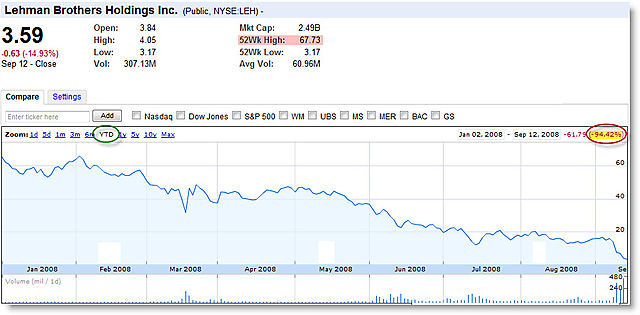With the markets making new lows and volatility shaking
investors out and in both directions, I thought this would be a good time to
talk about coping with loss.
There are predictable stages in coping with loss. In general you can expect to
go through anger, denial, bargaining,
despair, and finally acceptance. The stages of
grief are normal and to be expected. Here is a link to a more detailed
article about the stages of loss process.
Thought Patterns:
The past few weeks have been brutal. Many people I talked to recently are
suffering from "I should have …", or "if I
would have …", or "if I could have …"
thoughts. What do I mean? For example, I might think that things
would be better:
- if I would have flattened
exposure before the bail-out vote, or - if I could have held that short a little longer.
The
problem is that thoughts like those cannot affect the past. They only
create more stress and distraction. They are a lens focused on loss,
difficulties, past events, things that are missing, and what you don't want.
Think of them as an unhealthy reflex that wastes energy, confidence and time.
Instead the goal is to move forward and feel better. What follows is a
good head-start.
From time to time, economic and political events make people anxious and
fearful about their futures. This is one of those times. In response to
requests from their clients for insight on how to thrive when events seem to be
beyond their control, Strategic Coach offers ten
strategies for transforming negativity and unpredictability into opportunities
for growth, progress, and achievement.
They call it the "Scary Times Success Manual", and what follows are
some excerpts. The link to the complete version is below.
Forget about your difficulties, focus on your progress.
Because of some changes, things may not be as easy as they once were. New
difficulties can either defeat you or reveal new strengths. Your body's muscles
always get stronger from working against resistance. The same is true for the
"muscles" in your mind, your spirit, and your character. Treat this
whole period of challenge as a time when you can make your greatest progress as
a human being.
Forget about events, focus on your responses.
When things are going well, many people think they are actually in control of
events. That's why they feel so defeated and depressed when things turn bad.
They think they've lost some fundamental ability. The most consistently
successful people in the world know they can't control events – but continually
work toward greater control over their creative responses to events. Any period
when things are uncertain is an excellent time to focus all of your attention
and energies on being creatively responsive to all of the unpredictable events
that lie ahead.
Forget about what's missing, focus on what's available.
When things change for the worse, many desirable resources are inevitably
missing – including information, knowledge, tools, systems, personnel, and
capabilities. These deficiencies can paralyze many people, who believe they
can't make decisions and take action. A strategic response is to take advantage
of every resource that is immediately available in order to achieve as many
small results and make as much daily progress as possible. Work with every
resource and opportunity at hand, and your confidence will continually grow.
Forget about your complaints, focus on your gratitude.
When times get tough, everyone has to make a fundamental decision: to complain
or to be grateful. In an environment where negative sentiment is rampant, the
consequences of this decision are much greater. Complaining only attracts
negative thoughts and people. Gratitude, on the other hand, creates the
opportunity for the best thinking, actions, and results to emerge. Focus on
everything that you are grateful for, communicate this, and open yourself each
day to the best possible consequences.
Click here to listen to Dan Sullivan
present all ten "Scary Times" strategies.
Click here to download MP3 files or Click here to download a PDF version.


 As I write this, it looks like Lehman is filing for bankruptcy and that Merrill Lynch is getting sold to Bank of America. Futures are down.
As I write this, it looks like Lehman is filing for bankruptcy and that Merrill Lynch is getting sold to Bank of America. Futures are down.